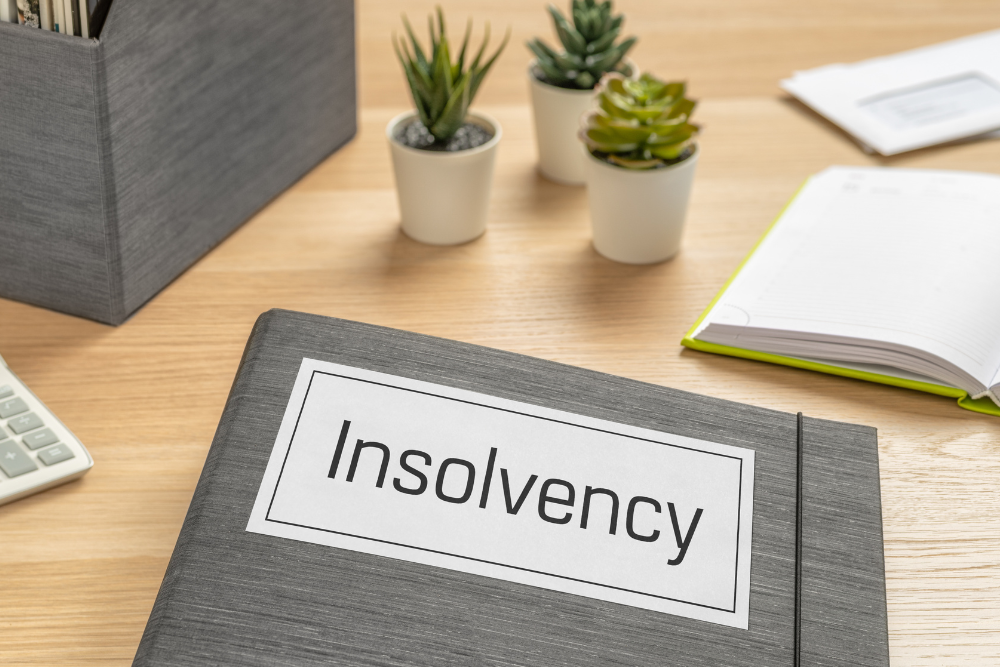Excitement About Insolvency Practitioner
Excitement About Insolvency Practitioner
Blog Article
Everything about Insolvency Practitioner
Table of ContentsThe smart Trick of Insolvency Practitioner That Nobody is Talking AboutThe Only Guide to Insolvency PractitionerThe smart Trick of Insolvency Practitioner That Nobody is Talking AboutThe 2-Minute Rule for Insolvency PractitionerA Biased View of Insolvency Practitioner
Whether or not you require to use an insolvency specialist (IP) to liquidate your firm relies on various elements. While engaging an insolvency professional for all kinds of liquidation is not a lawful need, doing so can frequently streamline the process and make certain conformity with lawful requirements. Liquidating a firm is a critical decision that includes substantial effects.
It is a procedure made use of when a firm does not have any lenders, or every one of their financial institutions can be repaid completely with legal passion. Recognizing the various sorts of insolvency processes can assist you figure out the ideal strategy for your firm's liquidation or various other formal bankruptcy procedures itself.
This is mandatory in order to follow legal needs - Insolvency Practitioner. This is since IPs have the needed credentials and experience to ensure that the liquidation process is conducted based on all appropriate legislations and policies. By engaging a qualified bankruptcy specialist, you can have tranquility of mind understanding that your company's liquidation process will certainly be taken care of properly and in conformity with the pertinent lawful needs
An Unbiased View of Insolvency Practitioner
The insolvency professional is assigned as a liquidator and is in charge of managing the company and liquidator's financial debts superior obligations and properties. This process involves selling the company's assets and dispersing the proceeds to financial institutions. Upon completion of the process, the firm is removed from the register at Companies Residence.
Failing to do so can result in personal responsibility for the firm or supervisor for the financial institution's financial debts. Voluntary liquidation, which consists of Creditors' Volunteer Liquidation (CVL) and Participants' Voluntary Liquidation (MVL), is started by the company's supervisors and investors when they can no much longer pay their financial debts. In a CVL, the insolvency specialist is marked as the liquidator, in charge of taking care of business financial obligations and all firm possessions.

Rumored Buzz on Insolvency Practitioner
By analyzing the proficiency and experience of potential insolvency professionals, you can ensure that you choose a specialist who has the necessary certifications to handle your firm's liquidation procedure properly. While insolvency practitioner-led liquidation is often the most ideal strategy for firms encountering insolvency, there are alternate strategies to consider, such as striking off and partial liquidation.
It's vital to assess all offered choices before making a decision on the following ideal solution or strategy for your service. Striking off companies' signs up is a more simple and cost-efficient means to shut inactive or little firms without any financial debts or possessions. To strike off a firm, its name is eliminated from the Firms Residence register by sending type DS01.
Before selecting striking off, it's vital to evaluate the benefits and disadvantages of this approach and take into consideration whether it's the appropriate option for your business. Partial liquidation is another alternative to insolvency practitioner-led liquidation, wherein a business sells off certain properties and obligations while remaining to operate with the staying possessions and obligations.
An Insolvency Professional will certainly be able to advise you of the most effective strategy to take and make certain that whatever runs smoothly. It is not feasible to sell off a business without a liquidator. useful reference Assigning an authorized insolvency specialist is necessary for the process of volunteer liquidation to begin.
Insolvency Practitioner for Dummies
It is feasible to close and liquidate your company without making use of a liquidator, offered your business is solvent and you meet the eligibility needs to dissolve or liquidate it. If your company is insolvent, you may be required to make use of a liquidator and start formal insolvency treatments. Below are a few other helpful write-ups pertaining to firm liquidation in the UK:.
Being in a position where you're not able to pay your firm's lenders is extremely difficult. In an attempt to prevent boosting the level of financial debt, several business try to negotiate directly with their financial institutions and concur to an informal arrangement. If the debt is rather small and owed to one creditor, and the creditor is being participating, entering right into an casual debt plan is possibly the most effective option, instead of looking the internet for 'a bankruptcy specialist near me'.
On the other hand, if there are multiple lenders and the degree of debt is big, financial institutions may not be so prepared or participating. To avoid liquidation or personal bankruptcy, it is better to employ a bankruptcy expert to formulate formal propositions and negotiate with lenders in your place.
An Unbiased View of Insolvency Practitioner
Whilst it is a method to manage debt, there are substantial dangers involved with this kind of debt setup - Insolvency Practitioner. If a creditor wants to participate in an informal arrangement (IA) where the debtor has actually accepted make regular, if lower, repayments to pay back the financial obligation, it is very important to adhere to the agreement

Consequently, the creditor is within their legal rights to revoke the contract and petition the courts for your firm to be sold off at any kind of time. An official plan that has actually been recommended by an insolvency practitioner on your behalf, and agreed by a lender, provides a much safer alternative.
Report this page